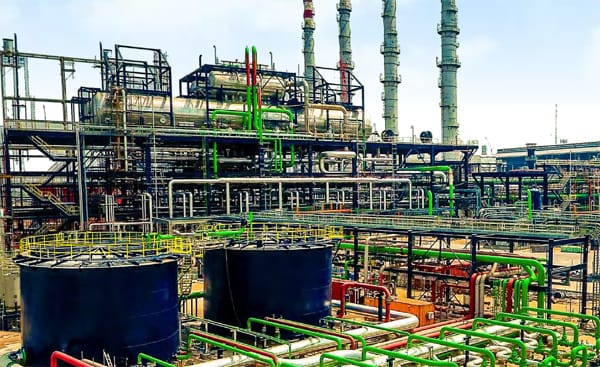Business
Dangote Reveals What Petrol Marketers Told Tinubu About Low Prices

Dangote reveals details of discussions between petrol marketers and President Tinubu about the challenges of maintaining low fuel prices.
Due to low demand from Nigerian oil marketers, Dangote Industries Limited has revealed its intention of prioritizing the exportation of petroleum products into international markets such as Europe.
Marketers had complained to President Bola Tinubu that the competitive pricing of Dangote Refinery was harming their businesses and as a result, this move has been made.
According to Devakumar Edwin, who is the Vice President of Dangote Industries, although the refinery has a high production capacity, it faces challenges in selling its products within Nigeria.
The company sells only 29 diesel tankers per day and as such relies heavily on exporting most of its aviation fuel and diesel.
In March, the refinery commenced exporting naphtha and in May it began selling low-sulphur straight-run fuel oil (LSSR) with a processing capacity of 650,000 barrels per day.
Meanwhile, sales of diesel and jet fuel started locally by April while European diesel exports initiated only by June.
Read Also: Fuel Landing Costs Surge, Marketers Worry About High Dangote Petrol Prices
Edwin, during a Twitter Spaces conversation by Nairametrics, revealed that unless there is an escalation in domestic demand, Dangote Refinery might have to completely shift its attention towards exports. This would comprise petrol as well – a recent addition to the refinery’s list of products.
Nigerian petroleum product marketers have sent a letter to President Bola Tinubu expressing their distress over the local prices of the refinery. They claim that significant drops from N1,200 to N1,000 and then further down to N900 per litre are having an unfavorable impact on their business operations.
He said that due to the insufficient support from local customers, a significant amount of diesel and aviation fuel manufactured by the refinery is sent overseas.
Edwin disclosed that the refinery has been exporting aviation fuel and diesel to foreign markets due to the existing low domestic sales.
He observed that if Nigeria’s National Petroleum Company Limited (NNPCL) does not buy their products, the practice of exporting refined fuel would persist.
According to Edwin, “The last phase of our production lineup has been achieved as we are now producing petrol successfully. Nevertheless, the resistance from local traders and complications in distributing products nationwide may force us to export just like aviation fuel and diesel that we already export.”
He stated that the company has experienced unforeseen challenges while commencing operations, primarily in obtaining enough crude oil supply. The refinery was initially intended to enhance Nigeria’s economy by refining domestically produced crude oil; nonetheless, it is now confronted with notable impediments.
Edwin expressed his frustration with the current situation, stating that although they have attempted to depend on locally sourced crude oil, it has been challenging to obtain adequate amounts. Consequently, they have had no choice but to import from nations such as Brazil and the United States. This predicament is contradictory to their refinery’s original principles since now they are exporting refined products while simultaneously importing raw materials.
